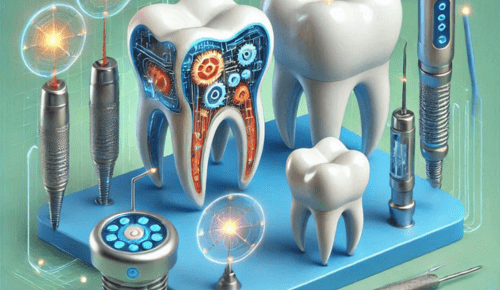
For children with autism, visiting the dentist can be a daunting and overwhelming experience. Sensory sensitivities, anxiety, and communication challenges can make routine dental care a significant obstacle. However, maintaining good oral health is crucial for overall well-being, and autistic children are no exception. Our expert dentist in Redmond, WA, understands the unique needs of autistic children and is committed to providing a welcoming, supportive, and personalized dental care experience. Our experienced team is trained to accommodate the special needs of autistic children, ensuring they receive the gentle, compassionate care they deserve.
Why is Dental Care Important for Autistic Kids?
Dental care is essential for children with autism, just like it is for any child. Regular dental visits can help prevent oral health problems, such as tooth decay and gum disease, which can be painful and debilitating. Additionally, good oral health is linked to overall health and well-being, and can even impact behavior and cognitive function.
What Are The Challenges of Dental Care For Autistic Kids?
Children with autism may face unique challenges when it comes to dental care. Some common challenges include:
- Sensory issues: The sights, sounds, and smells of the dental office can be overwhelming for autistic children.
- Anxiety and fear: The unknown and unpredictable nature of dental visits can cause significant anxiety and fear in autistic children.
- Communication challenges: Autistic children may have difficulty communicating their needs and feelings, making it hard for dentists and hygienists to understand their concerns.
- Behavioral challenges: Autistic children may exhibit behavioral challenges, such as tantrums or self-soothing behaviors, during dental visits.
What Are The Strategies for Successful Dental Visits?
To make dental visits more successful and comfortable for autistic kids, consider the following strategies:
- Prepare, prepare, prepare: Prepare your child for the dental visit by explaining what will happen, showing them pictures or videos of the dental office, and practicing relaxation techniques.
- Choose an autism-friendly dentist: Look for a dentist who has experience working with autistic children and who offers accommodations, such as sensory-friendly waiting rooms and flexible scheduling.
- Use visual aids and communication tools: Use visual aids, such as pictures or schedules, to help your child understand what will happen during the dental visit. Consider using communication tools, such as augmentative and alternative communication (AAC) devices, to help your child express their needs and feelings.
- Provide emotional support: Provide emotional support and reassurance to your child during the dental visit, and consider bringing a comfort item, such as a favorite toy or blanket.
- Consider sedation dentistry: In some cases, sedation dentistry may be necessary to help your child relax and cooperate during the dental visit.
Tips for Dentists and Hygienists
- Get to know the child: Take the time to get to know the child and their needs, preferences, and communication style.
- Use clear and simple language: Use clear and simple language when communicating with the child, and avoid using technical jargon or complex concepts.
- Be patient and flexible: Be patient and flexible when working with autistic children, and be willing to adjust your approach as needed.
- Provide sensory-friendly accommodations: Provide sensory-friendly accommodations, such as weighted blankets or fidget toys, to help the child relax and feel more comfortable.
- Collaborate with parents and caregivers: Collaborate with parents and caregivers to develop a personalized treatment plan that meets the child’s unique needs and preferences.
Takeaway
Dental care is an essential part of overall health and well-being, and autistic kids are no exception. By working together with dentists, hygienists, and other healthcare professionals, parents and caregivers can help make dental visits more accessible and comfortable for autistic children. Remember, every child is unique, and what works for one child may not work for another.
Be patient, flexible, and collaborative, and work together to develop a personalized treatment plan that meets your child’s unique needs and preferences.
